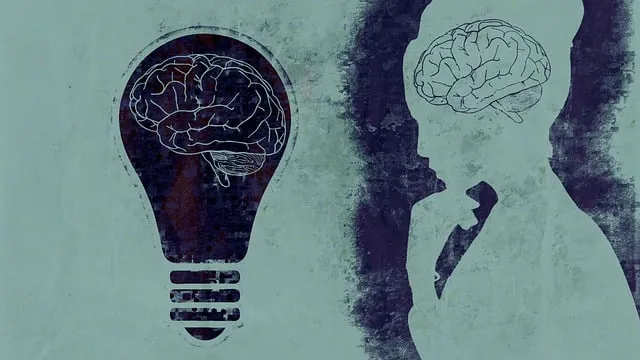The Littleton Kaiser Permanente Behavioral Health Center promotes Mental Wellness Journaling as a powerful tool for self-reflection and personal growth. This structured yet intimate practice helps individuals explore their thoughts, emotions, and experiences, enhancing self-awareness, stress reduction, and providing a historical record of progress. By setting aside consistent time in a quiet space, starting with simple prompts, and incorporating evidence-based practices like mindfulness or gratitude, anyone can harness the benefits of journaling to boost mental wellbeing, as advocated by the center's comprehensive treatment approach.
At Littleton Kaiser Permanente Behavioral Health Center, we believe mental wellness journaling is a powerful tool for self-care. This practice involves reflecting on thoughts and emotions through written expression, offering numerous benefits for mental wellbeing. From reducing stress to enhancing self-awareness, journaling can be a game-changer. Our step-by-step guide provides practical advice on how to start your own mental wellness journal, helping you navigate the process and reap its rewarding effects.
- Understanding Mental Wellness Journaling at Littleton Kaiser Permanente Behavioral Health Center
- Benefits of Incorporating a Journaling Practice for Mental Wellbeing
- Step-by-Step Guide to Starting Your Mental Wellness Journal
Understanding Mental Wellness Journaling at Littleton Kaiser Permanente Behavioral Health Center

At Littleton Kaiser Permanente Behavioral Health Center, Mental Wellness Journaling is recognized as a powerful tool for self-reflection and personal growth. This practice encourages individuals to explore their thoughts, emotions, and experiences in a structured yet intimate setting. By documenting daily life, patients can gain valuable insights into their mental health and develop effective coping strategies. The center promotes this journaling exercise as an accessible and engaging way to enhance public awareness campaigns related to mental wellness, fostering compassion cultivation practices among participants.
Through consistent reflection, individuals can build confidence and resilience, which are essential components of overall well-being. Journaling allows for the identification of patterns, triggers, and sources of stress, enabling people to take proactive measures in managing their mental health. With a focus on self-care and personal development, Littleton Kaiser Permanente Behavioral Health Center ensures that journaling becomes an integral part of their comprehensive treatment approach, ultimately boosting individuals’ confidence in navigating life’s challenges with greater equanimity.
Benefits of Incorporating a Journaling Practice for Mental Wellbeing

Incorporating a journaling practice into your routine can significantly enhance mental wellbeing, as evidenced by studies supported by the Littleton Kaiser Permanente behavioral health center. By providing a dedicated space for self-expression and reflection, journaling allows individuals to process their thoughts and emotions in a structured yet personal manner. This act of putting pen to paper—or fingers to keyboard—facilitates improved self-awareness exercises, enabling better understanding of one’s feelings, patterns, and triggers.
Through regular journaling, individuals can employ stress reduction methods by gaining clarity on stressors and developing coping mechanisms. The process serves as a powerful tool for stress management, promoting calmness and resilience. By documenting both good and bad days, successes and setbacks, journaling offers a historical record of personal growth and progress in navigating life’s challenges. This self-directed practice can be a game-changer in cultivating mental wellness, recommended by experts at Littleton Kaiser Permanente behavioral health center as an accessible and effective tool for enhancing overall well-being.
Step-by-Step Guide to Starting Your Mental Wellness Journal

Starting a mental wellness journal can be a powerful tool for self-discovery and personal growth, especially when guided by evidence-based practices. At the Littleton Kaiser Permanente behavioral health center, we recommend a step-by-step approach to begin your journaling journey. First, find a quiet space where you feel comfortable expressing yourself without judgment. Set aside dedicated time each day or week – consistency is key. Begin with a simple prompt like, “How am I feeling today?” or reflect on the events that shaped your emotions. Write freely, allowing thoughts and feelings to flow without structure.
Next, incorporate techniques such as mindfulness, gratitude, or compassion cultivation practices. For instance, you can write about three things you’re grateful for, fostering positive emotional healing processes. Or, practice self-esteem improvement by acknowledging your strengths and accomplishments. This journaling routine becomes a safe space to explore your mental landscape, track progress, and cultivate a deeper understanding of yourself, ultimately enhancing your overall well-being.
Mental wellness journaling can be a powerful tool, as demonstrated by practices at the Littleton Kaiser Permanente Behavioral Health Center. By incorporating this habit into your routine, you can experience significant improvements in mental wellbeing. Through self-reflection and expression, journaling offers a private space to process emotions, set goals, and track progress. Following the step-by-step guide provided, you’re on your way to unlocking these benefits and fostering a healthier mind.






